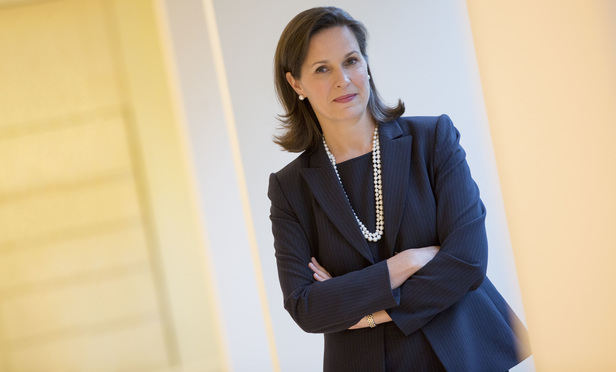Gibson Dunn is heading into the arguments having secured one win and one loss—both are now erased—in front of three-judge panels. A divided three-judge panel in October struck down the CFPB’s structure as unconstitutional, giving mortgage lender PHH Corp. a win. In Lucia, a different panel in August said the appointments of SEC administrative law judges were not unlawful.
The National Law Journal this week spoke with Gibson Dunn partner Helgi Walker, co-chair of the firm’s administrative law and regulatory practice group, about the preparation for the two cases and the firm’s approach to the new regulatory climate under President Donald Trump. Walker, a veteran appellate lawyer, jumped to Gibson Dunn in 2013 from Wiley Rein. She leads the firm’s regulatory team with partner Eugene Scalia, long a go-to for companies fighting perceived regulatory overreach.
Walker, who’s on the team representing PHH, said she sat on the moot court panel for Perry as he prepared for his argument in the SEC case. Perry returned the favor for the PHH team as Olson, a former U.S. solicitor general, prepared the case he plans to make Wednesday in the CFPB dispute. Olson in March got to test drive some of his argument on Capitol Hill, where he testified against the power of the CFPB.
Our conversation with Walker was edited for length and clarity.
NLJ: Take me inside the preparation. What have the PHH and Lucia teams been doing to prepare down the homestretch?
Walker: We have a really rigorous protocol for any oral argument presentation at Gibson Dunn. Most partners have at least two moot courts. It is really fun to see any moot court panel because there’s such a breadth of talent here at the firm that the questioning from the bench is really hardcore. And the clients attend the moot courts, our co-counsel attend the moot courts. We have an exhaustive discussion of the kinds of questions that might arise, how best to answer those questions in light of client needs and client positions.
There’s obviously a lot of nuance that goes into an appellate argument. And there, really, is an art of that kind of advocacy. We spend a lot of time preparing for those arguments. And I think it’s true that there is usually not a question that we get from the bench in real life that we haven’t already anticipated and thought through in our preparation process, because it is so extensive and it is so thorough. We just have a lot of really great minds all collaborating.
This content has been archived. It is available through our partners, LexisNexis® and Bloomberg Law.
To view this content, please continue to their sites.
Not a Lexis Subscriber?
Subscribe Now
Not a Bloomberg Law Subscriber?
Subscribe Now
LexisNexis® and Bloomberg Law are third party online distributors of the broad collection of current and archived versions of ALM's legal news publications. LexisNexis® and Bloomberg Law customers are able to access and use ALM's content, including content from the National Law Journal, The American Lawyer, Legaltech News, The New York Law Journal, and Corporate Counsel, as well as other sources of legal information.
For questions call 1-877-256-2472 or contact us at [email protected]





